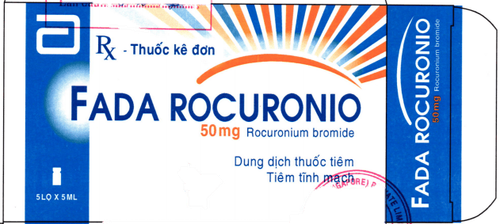This is an automatically translated article.
The article was written by Doctor Bui Hanh Tam - Department of Anesthesiology and Pain Treatment, Vinmec Times City HospitalBefore any surgery or procedure, the patient or medically responsible family member (usually the patient's wife, husband, parents, children, etc.) must also sign a written commitment to surgery. - tips. This is one of the legal and mandatory administrative procedures in the medical records. Why is this a mandatory procedure for patients before surgery and procedures in hospitals?
1. Commitment: Not just a procedure
Patient consent is a written agreement that records the information that has been exchanged and agreed between the patient and the doctor before deciding on surgery or procedure, in order to for the protection of both patients and doctors. Any other situation, other than a life-threatening emergency, in which the patient is unconscious, requires this undertaking to be signed. These documents are written in accordance with the Best Practice Guidelines guided by the Medical Ethics Council (Ministry of Health) and are legally applicable in all medical facilities/hospitals.The main content of this commitment sheet is understood that the patient or his/her family member has been explained and understood about the surgery-procedure, as well as the risks that may be encountered during the surgery-intervention. This will be convenient for both parties in case there are problems related to professional, health insurance, personal finance or law,...
2. Notes before signing Commitment to surgery - procedures
Any surgery has risks, complications, even the simplest surgery, the shortest operating time. However, the rate of this complication is small and the probability of success of surgery is often much higher than complications.
Therefore, before deciding to operate, the patient should actively learn to have essential information about the surgery (such as surgical method, anesthesia method, operation time, progress after surgery, follow-up). short-term, long-term follow-up,...) because it is directly related to his life and the lives of his loved ones.
Patients can completely find out information related to their current health status on the internet. However, the patient should still be selective about the information and do not hesitate to ask the doctor directly treating him or her about unanswered or unsatisfactory questions before an operation.
Before deciding to sign the commitment to surgery, the patient or the patient's family should know how to protect their rights by asking any questions they still have with the doctor. This helps the patient to prepare himself mentally for the surgery.
With their questions, the information obtained from the patient will help the patient better understand his/her current body condition, better prepare psychologically for the surgery and possible developments in the postoperative process. and recover.

Trước khi quyết định ký tên vào tờ cam kết phẫu thuật, người bệnh hoặc thân nhân bệnh nhân hãy đặt mọi câu hỏi mình còn băn khoăn với bác sĩ
3. The role of the doctor
On the doctor's side, signing the commitment with the patient also helps doctors work more seriously and responsibly with the patient and in accordance with professional ethics.
The patient will be asked questions by the doctor related to the surgery and anesthesia, from which the risk can be assessed using the scales printed in the medical literature and widely used in the world, and at the same time predictive. the success rate of surgery, anesthesia as well as warnings about the risks that may be encountered during surgery, in anesthesia and after surgery.
The doctor will make a treatment plan, the necessary follow-up process after surgery. This information helps the patient and family have a more detailed and specific plan for surgery preparation and long-term follow-up afterwards.
At Vinmec International General Hospital, every day there are thousands of surgeries and procedures, signing commitments is a routine. Therefore, customers and relatives should take the time to carefully read and ask the necessary questions for the doctor to have a relatively complete picture of the upcoming developments in the surgery as well as to protect their rights. . This will contribute significantly to improving the quality of treatment.
To consult / book an appointment at Vinmec Health System, please book an appointment HERE Or contact Hotline:
Vinmec Times City Hospital (Hanoi): Hotline: 02439743556 Vinmec Central Park Hospital (HCMC): Hotline: 028 3622 1166 Vinmec Nha Trang Hospital (Khanh Hoa): Hotline: 0258 3900 168 Vinmec Ha Long Hospital (Quang Ninh): Hotline: 0203 3828 188 Vinmec Hai Phong Hospital (Hai Phong): Hotline: 0225 7309 888 Vinmec Danang Hospital (Da Nang): Hotline: 0236 3711 111 Vinmec Phu Quoc Hospital (Kien Giang): Hotline: 029 7398 5588 Vinmec Royal City Clinic (Royal City HN Urban Area) 024 3975 6887 Vinmec Sai Clinic Saigon (Tran Cao Van, HCMC) - (028) 3520 3366 Vinmec Gardenia Clinic (Vinhomes Gardenia Urban Area 024 3975 6788 Vinmec Metropolis Clinic (Vinhomes Metropolis, Hanoi) 024 3975 6886













